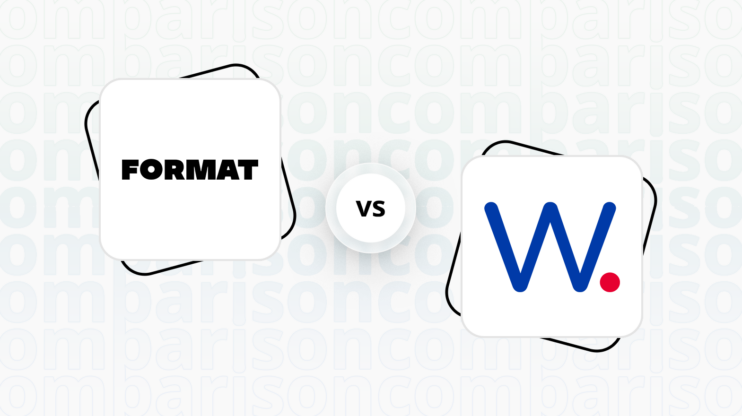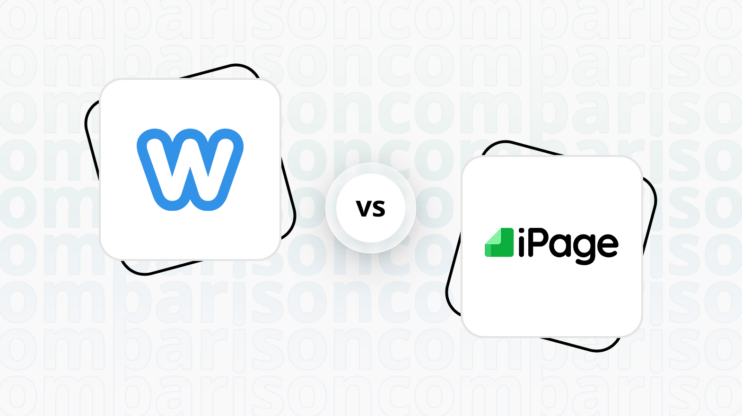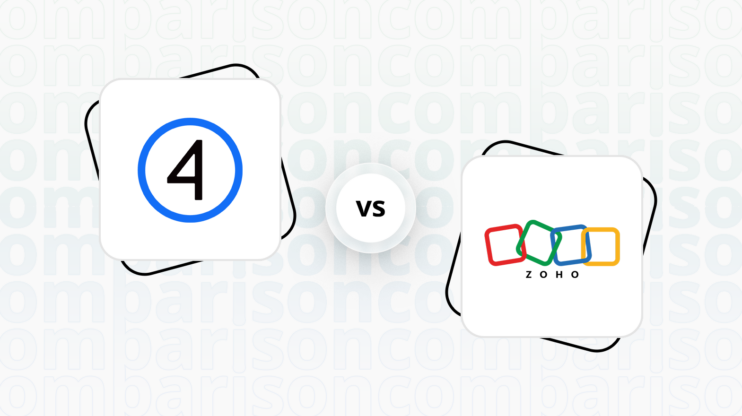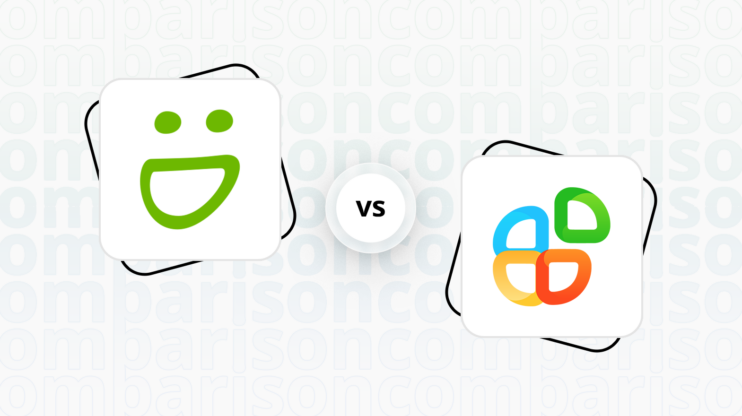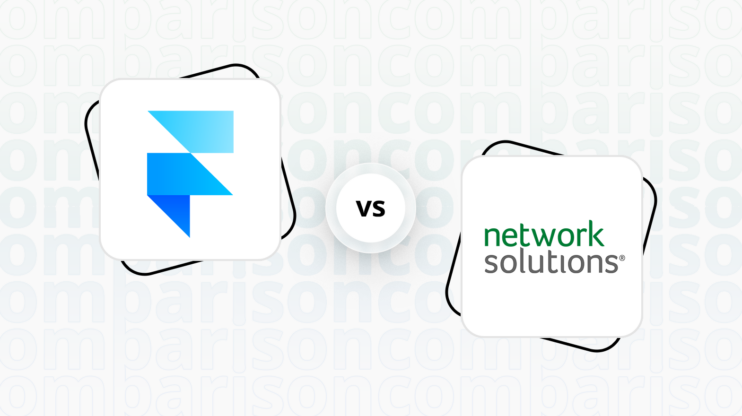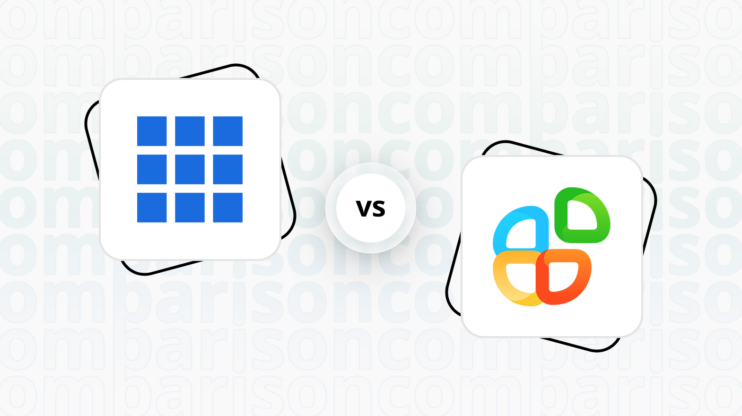Final verdict
GoDaddy and Drupal both offer unique advantages, but they cater to different user needs and skill levels.
-
GoDaddy (Overall Grade: 7.5/10)
is a comprehensive platform that excels in ease of use and customer support. It is particularly well-suited for beginners and small businesses looking for an all-in-one solution for website creation, domain registration, and hosting. GoDaddy’s user-friendly interface, extensive template collection, and robust ecommerce features make it a strong choice for those seeking simplicity and convenience. -
Drupal (Overall Grade: 6.4/10)
, on the other hand, is an open-source CMS known for its flexibility and extensibility. It is ideal for developers and advanced users who need to build complex websites with custom functionalities. Drupal offers a wide range of modules and themes, making it suitable for various types of websites, from personal blogs to large corporate sites. However, its steep learning curve and need for technical expertise may be challenging for beginners.

|

|
|
|---|---|---|
|
Design functionalities & templates |
8.0 |
7.8 |
|
Ease of use |
8.2 |
5.4 |
|
Ecommerce |
7.2 |
7.5 |
|
Website Editors |
6.7 |
7.5 |
|
Product testing options |
8.1 |
7.1 |
|
Price |
7.9 |
5.7 |
|
Hosting quality |
7.8 |
0 |
|
Website speed optimization |
7.6 |
6.4 |
|
Plugins and integrations |
7.3 |
8.6 |
|
Marketing features |
7.3 |
8.0 |
|
Customer support |
8.5 |
6.7 |
|
Security |
6.8 |
8.3 |
|
AI capabilities |
7.5 |
7.5 |
|
User Management |
7.3 |
9.1 |
| Overall |
7.5 |
6.4 |
Best for ecommerce
 7.2
7.2
 7.5
7.5
Verdict
: GoDaddy is user-friendly and suitable for beginners, while Drupal offers extensive customization for advanced users.
-
GoDaddy
: Known for its simplicity and ease of use, GoDaddy is ideal for small businesses and beginners. It offers essential ecommerce features like payment processing, shipping options, and SEO tools. However, when comparing GoDaddy vs Drupal, GoDaddy may lack the advanced customization and flexibility that more complex ecommerce operations require. -
Drupal
: As an open-source CMS, Drupal provides a high level of flexibility and customization, making it suitable for developers and businesses with specific needs. Its extensive range of modules and themes allows for detailed customization of ecommerce functionalities. However, it requires a higher level of technical skill to fully utilize its capabilities.
Best for informational & business websites
 7.9
7.9
 7.5
7.5
Verdict
: GoDaddy is the preferred choice for users seeking an easy-to-use platform with comprehensive hosting services, while Drupal is better suited for those needing extensive customization and advanced functionalities.
-
GoDaddy
: GoDaddy scores 7.9 for informational and business websites, making it a strong contender for users who prioritize ease of use and integrated services. Its user-friendly website builder, extensive template collection, and robust hosting options make it ideal for beginners and small businesses. GoDaddy’s all-in-one platform simplifies the process of creating and managing a website, offering tools for domain registration, web hosting, and online marketing. -
Drupal
: Drupal, with a score of 7.5, is a powerful open-source CMS that excels in flexibility and customization. It is suitable for developers and advanced users who need to build complex websites with custom functionalities. Drupal’s extensive range of modules and themes allows for a high degree of customization, making it a versatile choice for various types of websites, including corporate, political, and government sites. However, its steep learning curve may be a barrier for beginners.
Detailed comparison
Design functionalities & templates
Design FunctionalitiesRepresents how well each platform allows for creative design and customization of websites.Score Components:
- Template Variety (30%): Range and quality of design templates.
- Customization (30%): Flexibility and options for design alterations.
- User Interface (20%): Ease and intuitiveness of the design process.
- Responsiveness (10%): Adaptability to different devices and screen sizes.
- Innovation (10%): Unique design features and tools.
 8.0
8.0
 7.8
7.8
🏆
Winner: GoDaddy.
GoDaddy edges out Drupal with a slightly higher score in design functionalities and templates.
GoDaddy provides an extensive collection of over 1500 website templates catering to diverse industries and design preferences. These templates cover business, ecommerce, creative, personal, and non-profit sectors, offering various styles such as modern, classic, bold, minimalist, and content-focused.
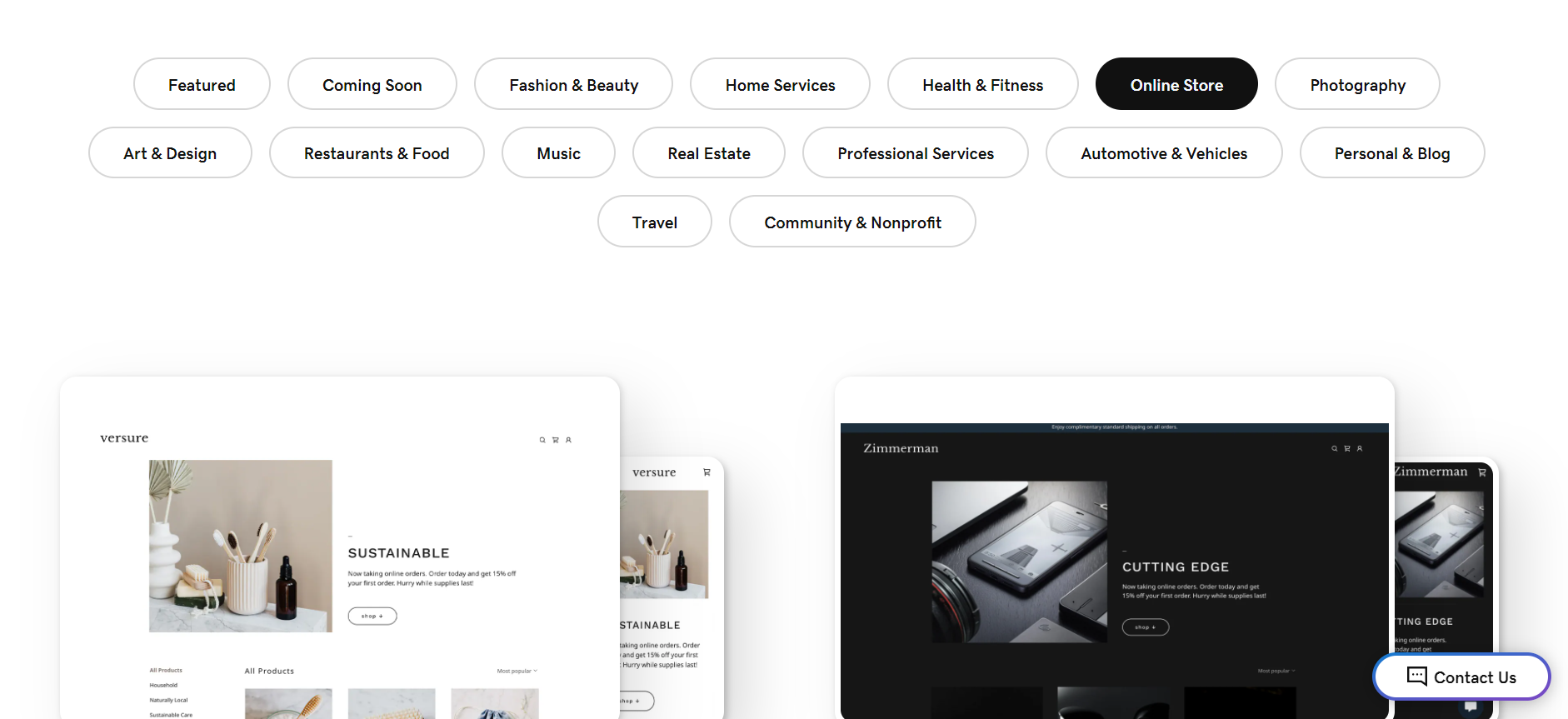

On the other hand, Drupal, as a highly flexible and powerful content management system, offers a vast array of templates and designs to cater to virtually any website need. With thousands of themes available, users can choose from minimalist designs, industry-specific layouts, and highly customizable multipurpose themes.
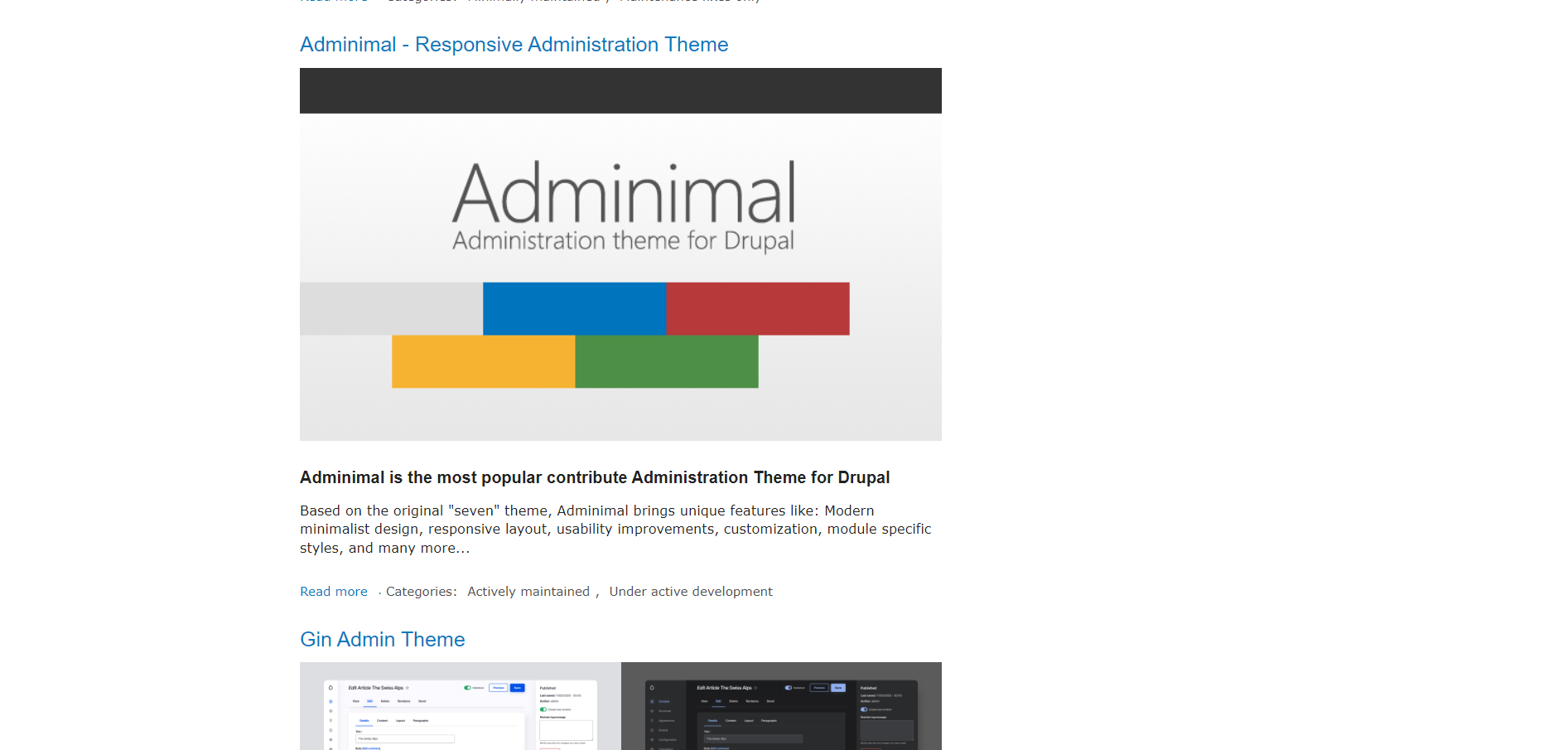
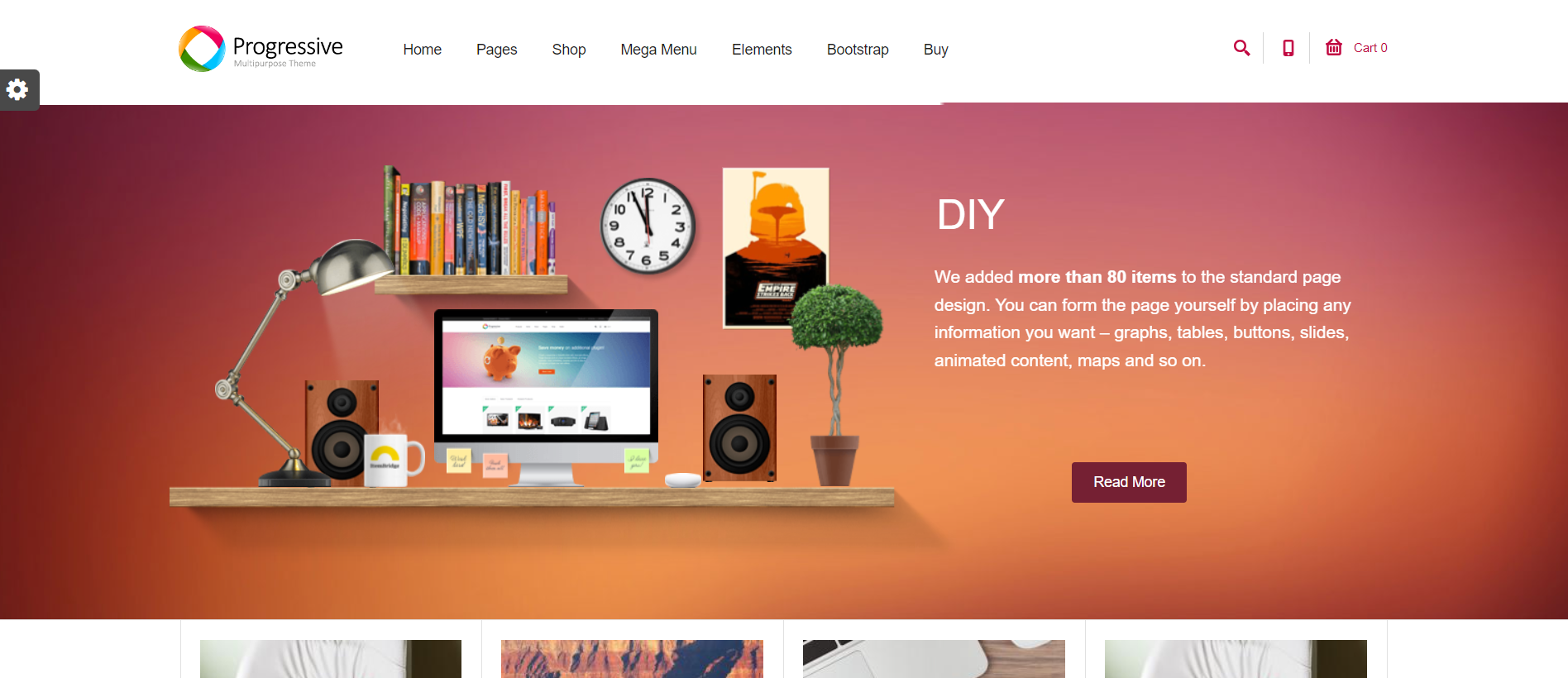
Get a head start on website creation with AI
Create a custom website tailored to your business needs 10X faster with 10Web AI Website Builder!
Ease of use
Ease of useReflects the platform’s overall user-friendliness.Score
Components:
- Learning curve (40%): Quickness and ease of getting started.
- Interface design (30%): Simplicity and intuitiveness of layout.
- User guidance (20%): Quality of tutorials and support.
- Flexibility (10%): Adaptability to various user skills.
 8.2
8.2
 5.4
5.4
🏆 Winner: GoDaddy
. Scoring 8.2, GoDaddy is known for its user-friendly platform, making it particularly popular among beginners. On the other hand, Drupal, with a score of 5.4, offers a powerful platform for building complex websites and applications, but its flexibility comes with a steep learning curve, especially for those not familiar with web development principles.
Learning Resources
🏆 Winner: Drupal
. Both platforms offer solid learning resources, but Drupal goes a step further with its extensive official documentation, a vibrant community forum, and a variety of online courses and tutorials. This makes it accessible for beginners and beneficial for advanced users looking to deepen their expertise.
For ecommerce
EcommerceMeasures the platform’s effectiveness in supporting online business activities.Score Components:
- Ecommerce themes and templates (20%): Variety and design of templates.
- Product management (25%): Ease of managing and organizing products.
- Payment options (25%): Variety and convenience of payment methods.
- Ecommerce features (20%): Features for managing an ecommerce store.
- Integration (10%): Compatibility with external e-commerce tools and services.
 7.2
7.2
 7.5
7.5
GoDaddy and Drupal both offer robust ecommerce solutions, but they cater to different needs and skill levels. GoDaddy’s ecommerce features are user-friendly and straightforward, making it a good choice for beginners or small businesses. On the other hand, Drupal’s ecommerce capabilities are more flexible and customizable, but they require a higher level of technical skill to fully utilize.

|

|
|
|---|---|---|
|
Ecommerce themes and templates |
6.5 |
7.8 |
|
Product page customization |
6.0 |
8.3 |
|
Payment processing and commissions |
7.5 |
7.5 |
|
POS capabilities |
6.0 |
5.5 |
|
Payment gateways |
7.0 |
7.7 |
|
Product numbers |
7.0 |
7.0 |
|
Additional ecommerce features |
6.5 |
8.0 |
GoDaddy ecommerce features:
- Payment processing
- Shipping options
- SEO tools
- Email marketing features
- Social media integrations
- Detailed reports
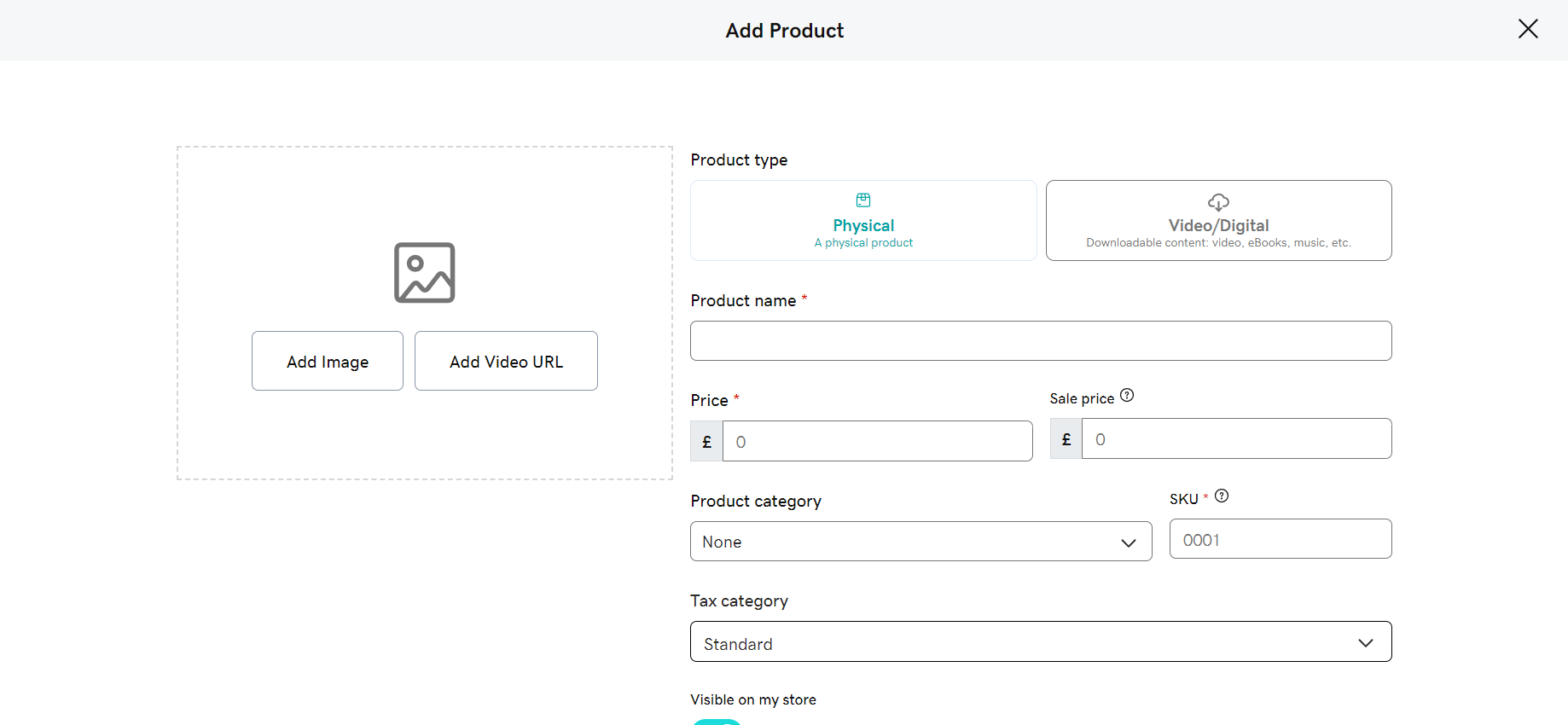
Drupal ecommerce features:
- Shopping Cart and Checkout Process
- Payment Gateway Integration
- Order Management and Invoicing
- Tax Calculation and VAT Support
- Shipping and Fulfillment
- Promotions and Discounts
- Reporting and Analytics
- Security and Compliance
Ecommerce themes & templates
GoDaddy offers around 70-80 ecommerce themes that cover a wide range of industries and styles. However, these themes may lack the variety and cutting-edge designs found on dedicated ecommerce platforms. On the other hand, Drupal offers a wide array of ecommerce themes that are responsive and customizable, catering to different types of online stores.
Product page customization
GoDaddy offers basic customization options for product pages, with advanced customization requiring coding knowledge. Drupal, on the other hand, offers extensive customization possibilities through its modular architecture, allowing for detailed content types, flexible displays, and theme customizations.
Payment processing
GoDaddy Payments provides a versatile solution for online, in-person, and phone payments with a tiered pricing structure. However, it may lack advanced Point of Sale (POS) features and specific integrations with shopping carts or CRM systems. Drupal supports a wide range of payment gateways through third-party modules, but the individual payment gateways integrated with it do have their own fee structures.
Website Editors
Website EditorsEvaluates the platforms’ website building and editing capabilities.Score Components:
- Customization tools (40%): Range and power of editing features.
- Editor usability (30%): User experience within the editor.
- Design flexibility (20%): Freedom in layout and design changes.
- Update and maintenance ease (10%): Simplicity of updating and maintaining the site.
 6.7
6.7
 7.5
7.5
🏆
Winner: Drupal
. Drupal, with a score of 7.5, offers a wide range of features tailored for content creation and management. It supports rich text editing, enabling users to format text, insert links, images, and media, as well as create tables and lists with ease. The editor is highly customizable, allowing administrators to configure toolbars and options according to the needs of their site. Furthermore, it integrates seamlessly with Drupal’s content management system, supporting features like automatic content saving, version control, and access control, making it a powerful tool for building and managing diverse web content.
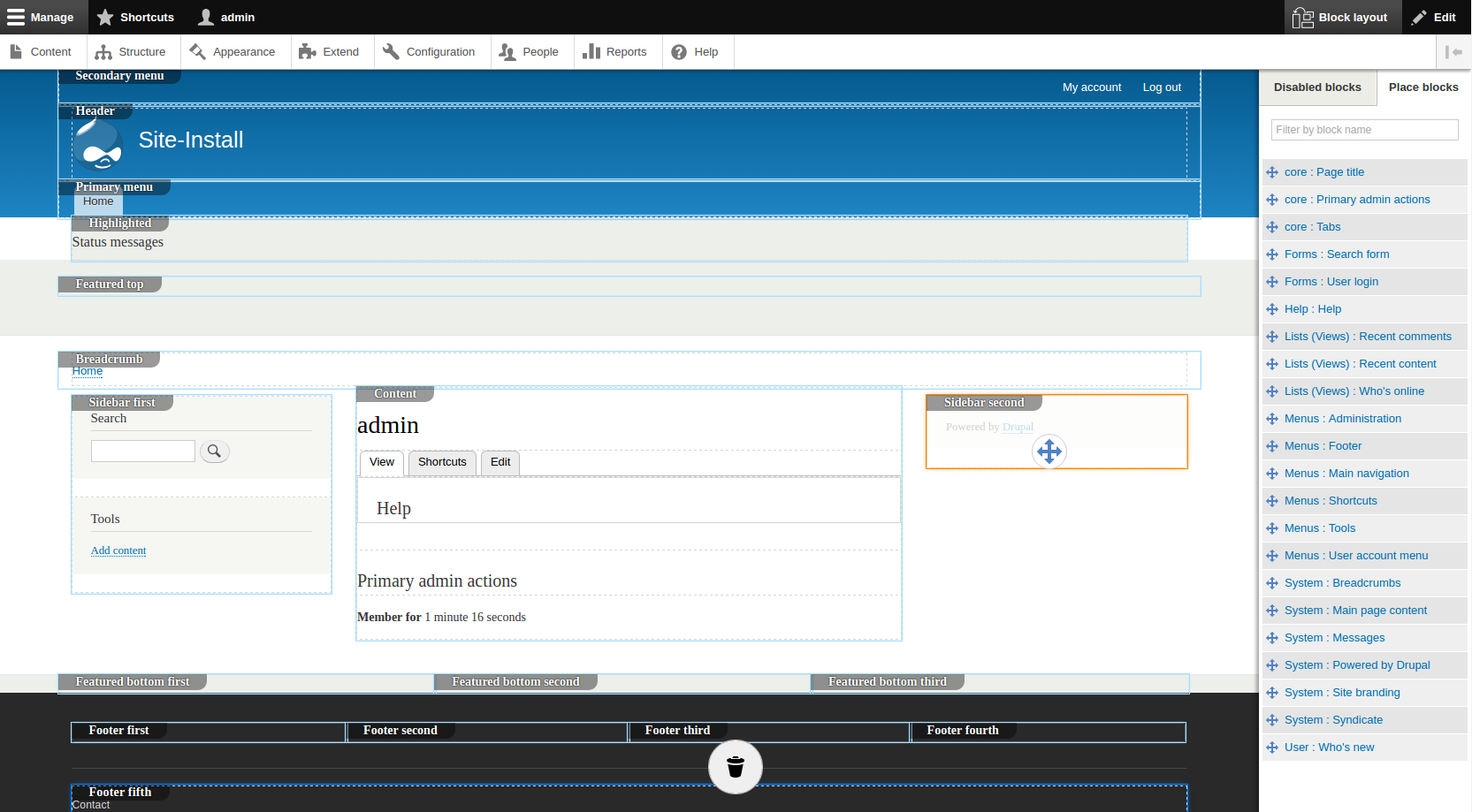
GoDaddy’s editor, scoring 6.7, is a user-friendly drag-and-drop tool enabling website creation without coding. It offers pre-designed templates, a mobile-friendly interface, basic SEO tools, and ecommerce integration, making it accessible for beginners, with affordable pricing plans and an all-in-one solution. However, it has some design limitations, basic features compared to dedicated platforms, a learning curve for extensive use, and potentially limited third-party app integrations.
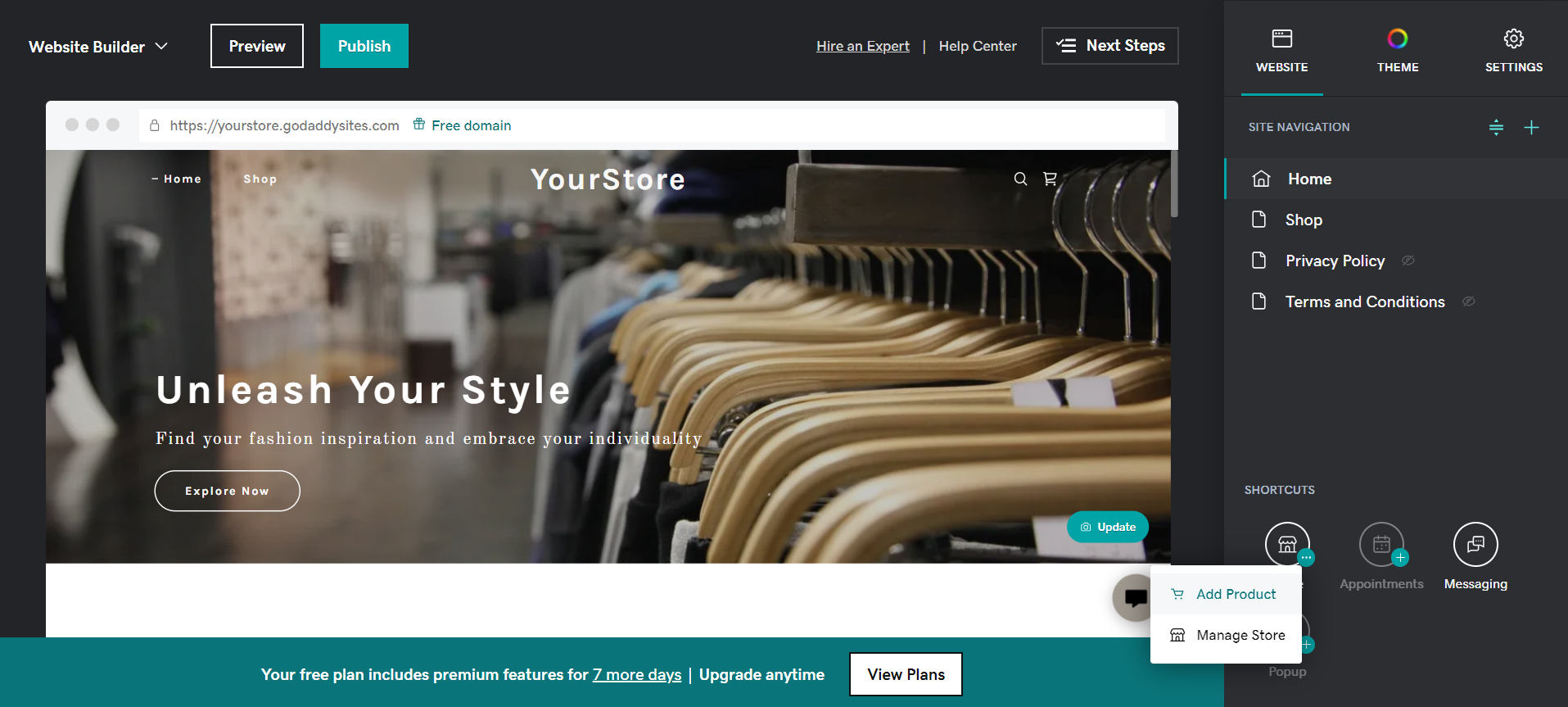
Mobile editor/app
 5.5
5.5
 0
0
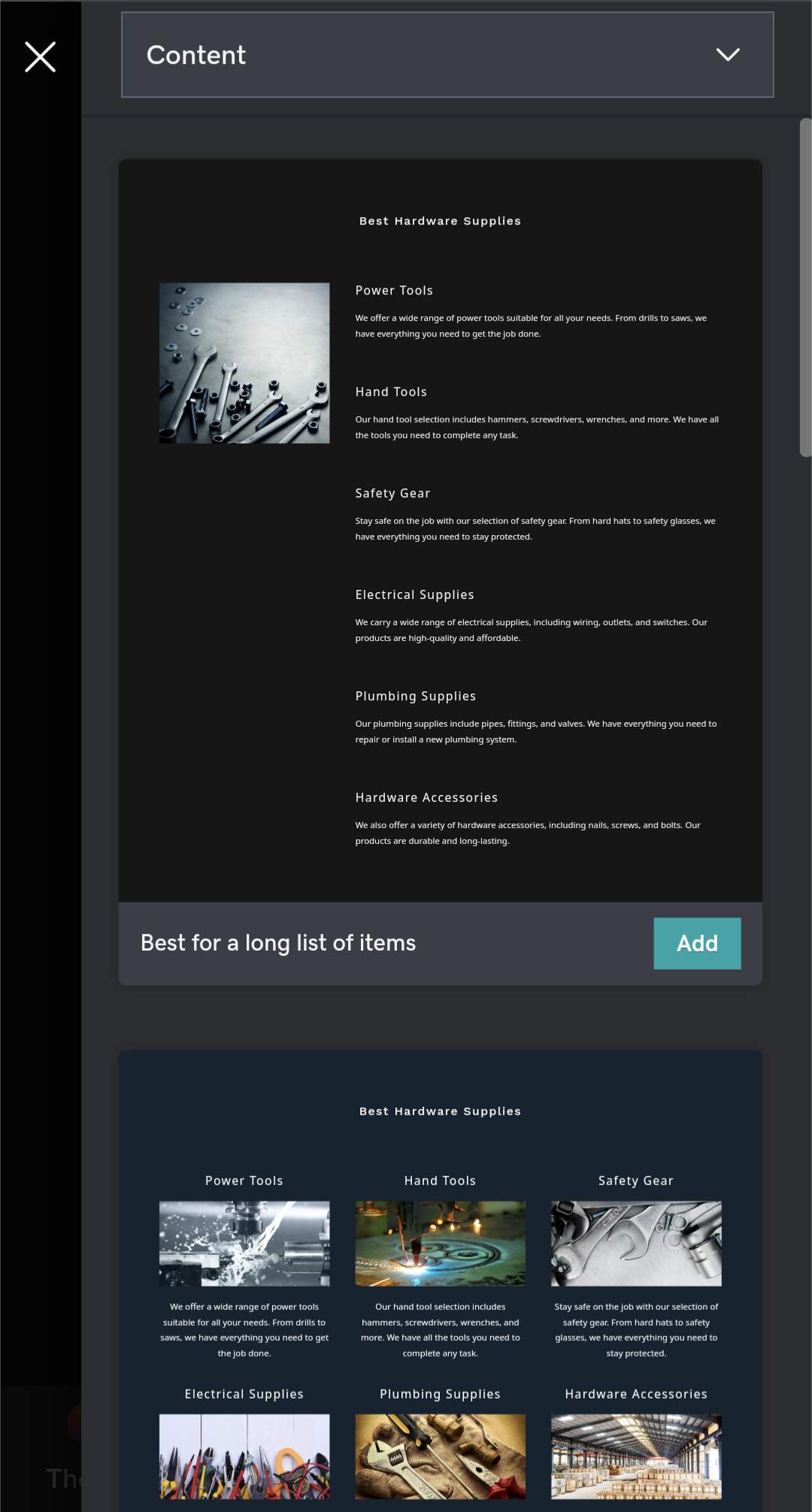
🏆
Winner: GoDaddy
. Both GoDaddy and Drupal lack a dedicated mobile app for editing websites. However, GoDaddy users can log into their account and access the website builder through a mobile web browser. While the experience might be slightly more constrained on a smaller screen, it still provides some form of mobile editing. On the other hand, Drupal does not offer any form of mobile editing, making GoDaddy the clear winner in this category.
Product testing options
Product Testing OptionsAssesses the options for trying out platform features before commitment.Score Components:
- Trial quality (40%): Extent and usefulness of the trial or free version.
- Feature accessibility (30%): How many features are available to test.
- Trial duration (20%): Length of the trial period.
- Ease of transition (10%): Smoothness of moving from trial to paid plans.
 8.1
8.1
 7.1
7.1
Overall Result
:
GoDaddy Wins
. GoDaddy scores 8.1, offering a free version, no trial version but a 30-day money-back guarantee, and the possibility to test all premium features within the refund window. Drupal, scoring 7.1, offers a free version as it is an open-source CMS, but lacks a trial version, the possibility to test premium features, and a money-back guarantee.

|

|
|
|---|---|---|
|
Free Plan |
Yes | Yes (open-source software) |
|
Trial Duration |
No (30-day money-back guarantee) | No |
|
Testing Premium Features |
Yes |
No |
Price
PriceLooks at the cost-effectiveness and value for money of each platform.Score Components:
- Plan value (40%): What each pricing tier offers.
- Transparency and clarity (30%): Clearness of pricing structures.
- Flexibility of plans (20%): Range of options to suit different budgets.
- Hidden costs (10%): Additional expenses not included in the plan.
 7.9
7.9
 5.7
5.7
GoDaddy offers a range of price plans, while Drupal is free but requires separate purchases for domain, hosting, and website builder subscriptions.

|

|
|
|---|---|---|
|
Free |
Free ($0/month): Build a basic website with limited templates, storage, and features. Ideal for testing the platform. |
No offering at this amount. |
|
$0-$8 |
Basic ($5.99/month): More templates, custom domain support, email marketing, SEO tools, social media integrations, analytics. Ideal for personal websites and small businesses. Value for Price: 6.5 |
No offering at this amount. |
|
$8-$10 |
Premium ($9.99/month): All Basic features + blog, ecommerce with product listings and payments, advanced marketing tools, and analytics. Ideal for businesses with online sales or growing web presence. Value for Price: 8.0 |
No offering at this amount. |
|
$10-$18 |
Commerce ($15.99/month): All Premium features + advanced ecommerce tools like cart recovery, discounts, reviews, memberships, and unlimited products. Ideal for businesses with significant online sales and complex product offerings. Value for Price: 9.0 |
No offering at this amount. |
|
$18+ |
Pro ($19.99/month): All Commerce features + priority support, higher bandwidth, website security, and CDN. Ideal for businesses with high traffic and critical online presence. Value for Price: 9.5 |
No offering at this amount. |
location. As a result in rare cases the prices displayed here can differ from the ones you see on their
websites.
Hosting quality
Hosting
qualityExamines the reliability and performance of the hosting solutions.Score Components:
- Uptime (40%): Consistency and reliability of website availability.
- Speed (30%): Loading times and performance.
- Bandwidth and storage (20%): Sufficiency of resources provided.
- Data centers (10%): Quality and distribution of hosting infrastructure.
 7.8
7.8
 0
0
Winner: GoDaddy
. GoDaddy offers a range of hosting services, including shared hosting, VPS hosting, dedicated hosting, and WordPress hosting. It also provides a 99.9% uptime guarantee and has data centers in the USA, France, Germany, and the UK. On the other hand, Drupal does not directly provide hosting services, and the uptime and data centers depend on the hosting provider chosen by the user.

|

|
|
|---|---|---|
|
Do they offer hosting? |
Yes, included in all plans |
No, depends on hosting provider |
|
Data Centers: |
USA, France, Germany, UK |
Depends on hosting provider |
|
Type of hosting: |
Shared Hosting, VPS Hosting, Dedicated, WordPress Hosting |
Depends on hosting provider |
|
Uptime: |
99.9% |
Depends on hosting provider |
|
Uptime Guarantee: |
Yes, 99.9% |
Depends on hosting provider |
Website Speed Optimization
Website Speed OptimizationEvaluates optimization of website loading timesScore Components:
- PageSpeed Score (30%): Google’s score indicating performance optimization.
- Loading Time (30%): The average time until a website is fully interactive.
- Mobile Optimization (15%): Optimization effectiveness for mobile devices.
- Resource Optimization (15%): Optimizing images, scripts, and other heavy resources.
- CDN Usage (10%): Use of CDN to enhance speed across geolocations.
 7.6
7.6
 6.4
6.4
🏆 Winner: GoDaddy
Both GoDaddy and Drupal prioritize website performance and page speed, but GoDaddy takes the lead with its comprehensive speed optimization strategies and infrastructure upgrades.

|

|
|
|---|---|---|
|
Focus |
CDN, Automatic Maintenance, Resource Optimization |
User-guided optimization |
|
Performance Tools |
Infrastructure upgrades, caching mechanisms, image optimization tools, automatic minification of code files |
User-guided optimization |
|
Key Strategies |
CDN, Automatic Maintenance, Resource Optimization |
User-guided optimization |
|
Load Times |
Shared Hosting: 2-4 seconds, VPS Hosting: 1-2 seconds, Dedicated Server: 0.5-1.5 seconds |
Varies depending on optimization and website complexity |
|
Page Speed Scores Range |
Shared Hosting: 50-70/100, VPS Hosting: 70-85/100, Dedicated Server: 80-95/100 |
Varies depending on optimization and website complexity |
|
Core Web Vitals Improvement |
Infrastructure upgrades, caching mechanisms, image optimization tools, automatic minification of code files |
Depends on users |
GoDaddy has enhanced its platform through infrastructure upgrades, including improved server infrastructure and data centers, resulting in faster loading times. Additionally, the implementation of effective caching mechanisms, image optimization tools, and automatic minification of code files contribute to a smoother user experience and improved Core Web Vital metrics. The website builder features optimized templates and code structures for efficient rendering, further enhancing overall performance.
On the other hand, Drupal’s speed optimization is largely user-guided. The platform offers numerous guides and tutorials on speed optimization, allowing users to optimize almost all aspects of their website. However, this means that the load times and PageSpeed scores can vary greatly depending on the optimization and complexity of the website. The improvement of Core Web Vitals also depends on the users’ optimization efforts.
Get a head start on website creation with AI
Create a custom website tailored to your business needs 10X faster with 10Web AI Website Builder!
Plugins and integrations
Plugins and integrationsMeasures the range and effectiveness of additional plugins and integrations.Score Components:
- Variety of options (40%): Range of available add-ons.
- Integration smoothness (30%): Ease of integrating plugins into the site.
- Quality of plugins (20%): Functionality and reliability of the options.
- Custom integration capabilities (10%): Support for custom or third-party integrations.
 7.3
7.3
 8.6
8.6
🏆 Winner: Drupal.
With a score of 8.6, Drupal outperforms GoDaddy, which scores 7.3. Drupal’s open-source nature allows it to offer over 51,000 free and open-source modules, extending its capabilities beyond its core features. These modules enable functionalities like advanced SEO tools, e-commerce solutions, and custom content types and fields. On the other hand, GoDaddy offers a limited set of built-in features with certain premium apps available for additional fees. However, it provides access to the WordPress plugin repository in case of Managed and Unmanaged WordPress Hosting.
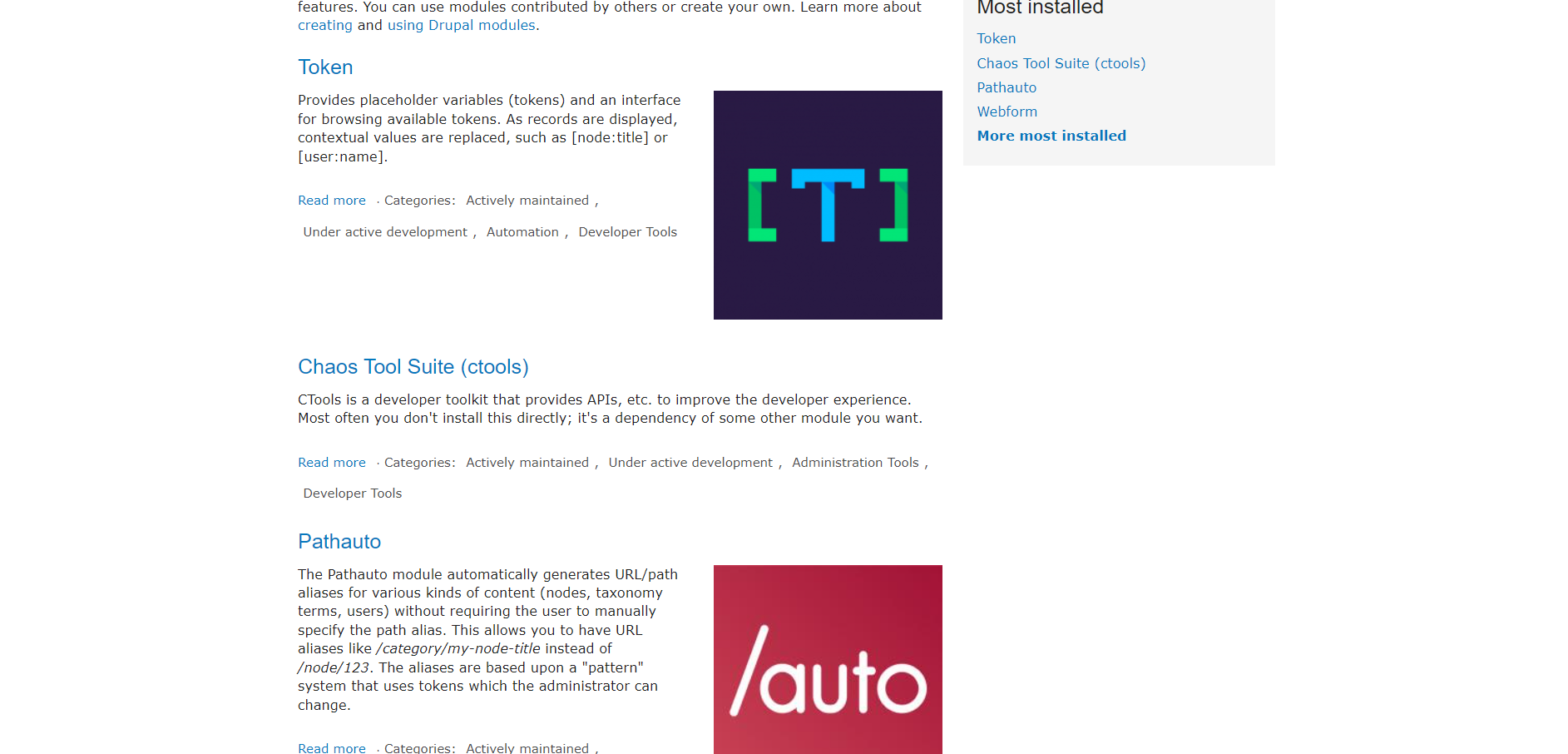
Marketing Features
Design FunctionalitiesRepresents how well each platform allows for creative design and customization of websites.Score Components:
- Template Variety (30%): Range and quality of design templates.
- Customization (30%): Flexibility and options for design alterations.
- User Interface (20%): Ease and intuitiveness of the design process.
- Responsiveness (10%): Adaptability to different devices and screen sizes.
- Innovation (10%): Unique design features and tools.
 7.3
7.3
 8.0
8.0
🏆
Overall Winner: Drupal
. Drupal stands out for its flexibility and extensibility, enabling developers to create complex websites with custom functionalities. GoDaddy is strong in email marketing and blogging, ideal for content-driven strategies.

|

|
|
|---|---|---|
|
SEO Tools |
|
|
|
Email Marketing |
|
|
|
Blogging |
|
|
|
Social Media Integration |
Tools for social media linking and content sharing |
Advanced integration for content sharing and posting |
|
Analytics and Reporting |
Basic analytics with more detailed insights on higher plans |
Basic built-in features, and Google Analytics integrations through modules |
|
Ads and Promotions |
Features to create and track online ads, including Google Ads |
Yes, but with third-party extensions |
Customer Support
Customer supportEvaluates the quality and availability of support options.Score Components:
- Response time (40%): Speed of support responses.
- Support quality (30%): Effectiveness and helpfulness of the support.
- Availability (20%): Range of support channels (phone, chat, email).
- Resource richness (10%): Quality of self-help and educational materials.
 8.5
8.5
 6.7
6.7
🏆 Winner: GoDaddy
. Comparing GoDaddy vs Drupal, GoDaddy stands out with its extensive customer support options, including 24/7 phone support in multiple languages, live chat, and email assistance. The platform also offers a 24/7 Community Forum and social media support, ensuring users have access to help whenever they need it. Enterprise customers benefit from dedicated account managers and priority routing for quicker issue resolution.
Drupal, on the other hand, provides a community support system through Drupal.org, including forums and documentation. Professional 24/7 support services are available via providers like Drupal Connect and GreenGeeks, offering flexible plans and optimized hosting. However, Drupal’s support is not as comprehensive as GoDaddy’s, particularly for enterprise-level needs.
Security
SecurityLooks at the platforms’ security measures and data protection.Score Components:
- Data protection (40%): Safeguards for user and customer data.
- SSL and encryption (30%): Implementation of secure connections.
- Compliance (20%): Adherence to industry security standards.
- Regular updates (10%): Frequency of security updates and patches.
 6.8
6.8
 8.3
8.3
🏆
Winner: Drupal
. Drupal’s security score of 8.3 outperforms GoDaddy’s 6.8, indicating a more robust security framework. Drupal’s open-source nature allows for extensive customization and configuration to enhance security, including role-based access control, field permissions, and encryption for data at rest. Regular updates and security audits, along with security-focused modules, further bolster Drupal’s security.
GoDaddy, while offering encryption and adherence to security standards, provides limited options for private data storage protection. Its website security features include SSL certificates, malware scanning, and web application firewalls, but users seeking comprehensive data security may need to consider additional solutions.
AI Capabilities
AI capabilitiesMeasures the effectiveness of AI-driven features and tools.Score Components:
- Automation efficiency (40%): Impact of AI on streamlining processes.
- Personalization (30%): AI-driven customization for users or customers.
- AI-Assisted design (20%): Role of AI in website design and functionality.
- Data analysis (10%): Use of AI in interpreting user data and analytics.
 7.5
7.5
 7.5
7.5

|

|
|
|---|---|---|
|
AI Website Builder |
|
|
|
AI Ecommerce Features |
AI-generated product descriptions, customer service tool, and digital ad creation |
Chatbots, automated content generation, SEO optimization, and cognitive services |
|
AI Content Generation |
AI-generated product descriptions, customer service messages, and social media ads |
AI Connect module for content generation, SEO optimization, and multilingual support |
|
Additional AI Features |
|
AI-based search enhancements, content personalization, automated content moderation, language translation, content localization, and accessibility improvements |
🏆 Winner: Drupal
. Despite both platforms having the same score for AI capabilities, Drupal offers a wider range of AI features, particularly in content generation and additional AI features. Drupal’s AI capabilities are more versatile and can be enhanced through modules, third-party services, and custom development. On the other hand, GoDaddy’s AI capabilities are more focused on eCommerce and content generation.
User Management
User ManagementAssesses the platforms’ capabilities in managing user roles, permissions, and accessibility.Score Components:
- Role Customization (40%): Flexibility in creating and defining user roles and
permissions. - Ease of Management (30%): User interface and tools for managing users.
- Access Control (20%): Effectiveness of access control measures for different user
levels. - Scalability (10%): Ability to manage a growing number of users efficiently.
 7.3
7.3
 9.1
9.1
🏆 Winner: Drupal
. Both GoDaddy and Drupal offer different approaches to user management.
- GoDaddy’s number of users who can edit a website varies based on the hosting plan and website building tool. For Website Builder (GoCentral and Websites + Marketing), the free plan permits one user, while Deluxe and Ultimate plans allow up to five users with full editing permissions. In WordPress Hosting, there’s default support for unlimited users, each with customizable permission levels controlled through the WordPress dashboard.
- Drupal’s flexible permission and role system allows for an unlimited number of users to manage and edit a website, only constrained by server capacity and practical management considerations. Administrators can create various roles, such as “Editor” or “Administrator”, each with customized permissions.
GoDaddy User Roles and Access Levels:
| Role | Description | Access Highlights |
|---|---|---|
| Account Holder | The primary owner of the GoDaddy Website Builder account. | Full access to all website builder features, domain management, hosting settings, and account settings. |
| Delegate Access | Users granted permission by the account holder to access specific parts of the GoDaddy account. | Can be given varying levels of access, from managing domains and products to making purchases on behalf of the account holder. |
| Website Editor | Users with permissions to edit and update the website through the Website Builder interface. | Can customize the website, add or edit sections (e.g., image galleries, menus), and update content. |
| Online Store Manager | Specifically for websites with e-commerce capabilities, managing product listings, orders, and payments. | Access to manage the online store, including product listings, coupons, shopping cart, shipping, and payments. |
Drupal User Roles and Access Levels:
| Role | Description | Access Highlights |
|---|---|---|
| Editor | Users responsible for content creation, editing, and publishing. | Can create, edit, delete, and publish content; can also manage comments. |
| Moderator | Users focused on site moderation, including comment and user management. | Can approve or delete comments, block users, and manage reported content. |
| Administrator | Users with full access to all administrative features of the site. | Can change site configuration, manage all content, users, permissions, and install modules/themes. |
Additional Features

|

|
|
|---|---|---|
|
SSL Certificate |
|
|
|
Custom Domain |
|
|
|
Free Custom Domain Included |
|
|
|
International Domains |
|
|
|
Mobile Responsive |
|
|
|
Page Speed |
|
|
|
Website Builder Mobile App |
|
|
|
Convert a Website To An App |
|
|
|
Website Analytics |
|
|
|
Multilingual Sites |
|
|
|
Multiple Users |
|
|
User Feedback
Users generally praise GoDaddy for its affordability, reliability, and user-friendly interface, particularly in domain registration and hosting services. However, concerns include occasional interface changes, perceived slowness in website hosting, and dissatisfaction with pricing increases.
Users appreciate Drupal for its ease of use, security, and flexibility as an open-source CMS, highlighting its ability to scale and support a variety of websites and applications with modern technology tools. The community and documentation are frequently mentioned positives, providing ample support and resources. However, criticisms include a relative lack of plugins and themes compared to competitors like WordPress, the learning curve for customization without coding, and some challenges with installation and updates. The platform is praised for its robust content management capabilities, enabling users to manage content and user access efficiently. Overall, feedback underscores Drupal’s strength in creating secure, customizable, and scalable web solutions, despite some desires for more intuitive UI and easier setup.
The making of this blog
We followed a clear, step-by-step process to write and research this article.
FAQ
Which platform is easier for beginners, GoDaddy or Drupal?
Can I use both GoDaddy and Drupal for ecommerce websites?
How do GoDaddy and Drupal compare in terms of design functionalities and templates?
Which platform offers better customer support, GoDaddy or Drupal?
In terms of security, which platform is more robust, GoDaddy or Drupal?
Are there any significant differences in the AI capabilities between GoDaddy and Drupal?
Which platform is recommended for users needing advanced user management features?










